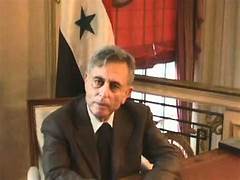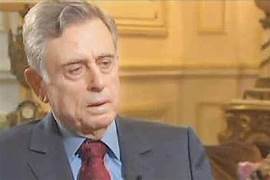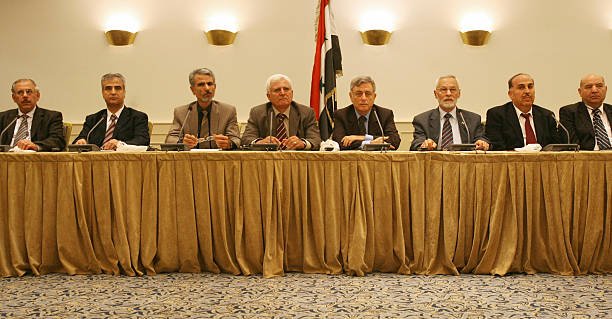Abdel Halim Khaddam stated that the imposition of a state of emergency in Syria for 45 years up to the present day was due to the fact that the ruling regime, which came to power through a military coup, wanted to protect itself and strengthen its monopoly on power.
Khaddam, who announced his defection from the Syrian regime at the end of 2005 and later participated in founding the National Salvation Front in alliance with the Muslim Brotherhood and opposition Syrian forces abroad, said: “For 45 years, a state of emergency has been declared in Syria and persists to this day under the Emergency Law. According to the Emergency Law, a state of emergency is declared in three cases: during a state of war, in the event of an armed rebellion threatening public security, or in the case of a natural disaster. When the state of emergency was declared in Syria, none of these three situations existed. Why was it declared? Because the new regime, by monopolizing power, wanted to protect the regime by declaring a state of emergency.”
Khaddam stated in a televised message to the Syrians that “the state of emergency has led to the death and displacement of more than three hundred thousand Syrians during this long period and has strengthened the arbitrariness of power, turning the country into a large prison.”
He explained that the state of emergency and exceptional laws “have led to a division in national unity, which has resulted in backwardness… this has led to the growth of fear… this has led to widespread corruption, this has led to general paralysis… it has turned Syria, instead of being a leading and pioneering state, into one of the isolated states, viewed by the world, both inside and outside, as a repressive regime.”
Abdel Halim Khaddam asked: “Does Michel Kilo pose a threat to the state’s security, a threat to the security of Syrian society? Is there any evidence that Kamal Labwani represents a threat to society’s security? And Walid al-Buni? And Professor Ali Abdullah? And many others who have been imprisoned, whether members of the Damascus Declaration, other Islamist groups, Kurds, etc.?”
He added, “Without the state of emergency, the situation in Syria would be completely different (…). The state of emergency was used only to protect the regime against political forces, against the idea of freedom and democracy, but it was not used to protect citizens’ security against ordinary crimes. The state of emergency was declared only to protect the regime, not to protect society’s security. Under the state of emergency, the defeat of June 1967 became a reality, the defeat of October 1973 became a reality, and all the problems Syria faces today are.”
Khaddam noted that “the problem lies in the fact that the regime is anxious and fearful. It knows that the country has become a pile of straw in need of a spark, and it fears that these activists might become the spark that ignites the straw and triggers the downfall of this regime. Therefore, we expect the regime to suppress, as it is very close to the final phase of its collapse,” according to Khaddam.
He concluded by addressing the youth in Syria, saying: “This regime is illegitimate… This regime is an occupying regime… What is the difference between this regime and any occupying force in any country with an occupying force? All occupying forces have rules to follow. The regime in Syria has set aside all rules and has become worse than any occupation known in developing countries. It kills people, displaces them, plunders the country, destroys national unity, abandons the homeland, with the Golan issue being the most important to it. Isn’t this what this regime has become? The regime fits these characteristics. The problem is that the regime is anxious and fearful. It knows that the country has become a pile of straw in need of a spark, and it fears that these activists might become the spark that ignites the pile of straw and triggers the downfall of this regime. Therefore, we expect the regime to suppress, as it is very close to the final phase of its collapse.”



